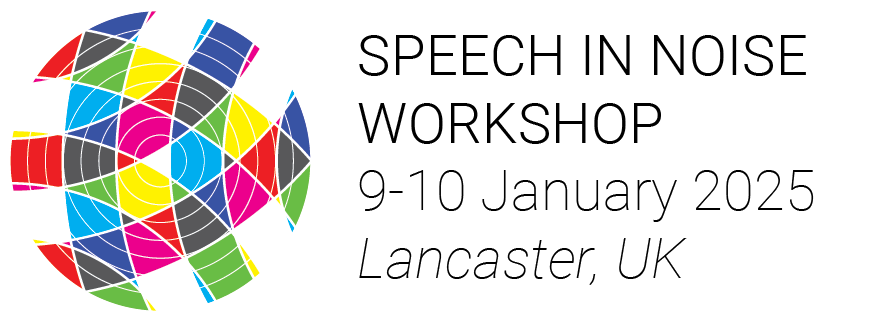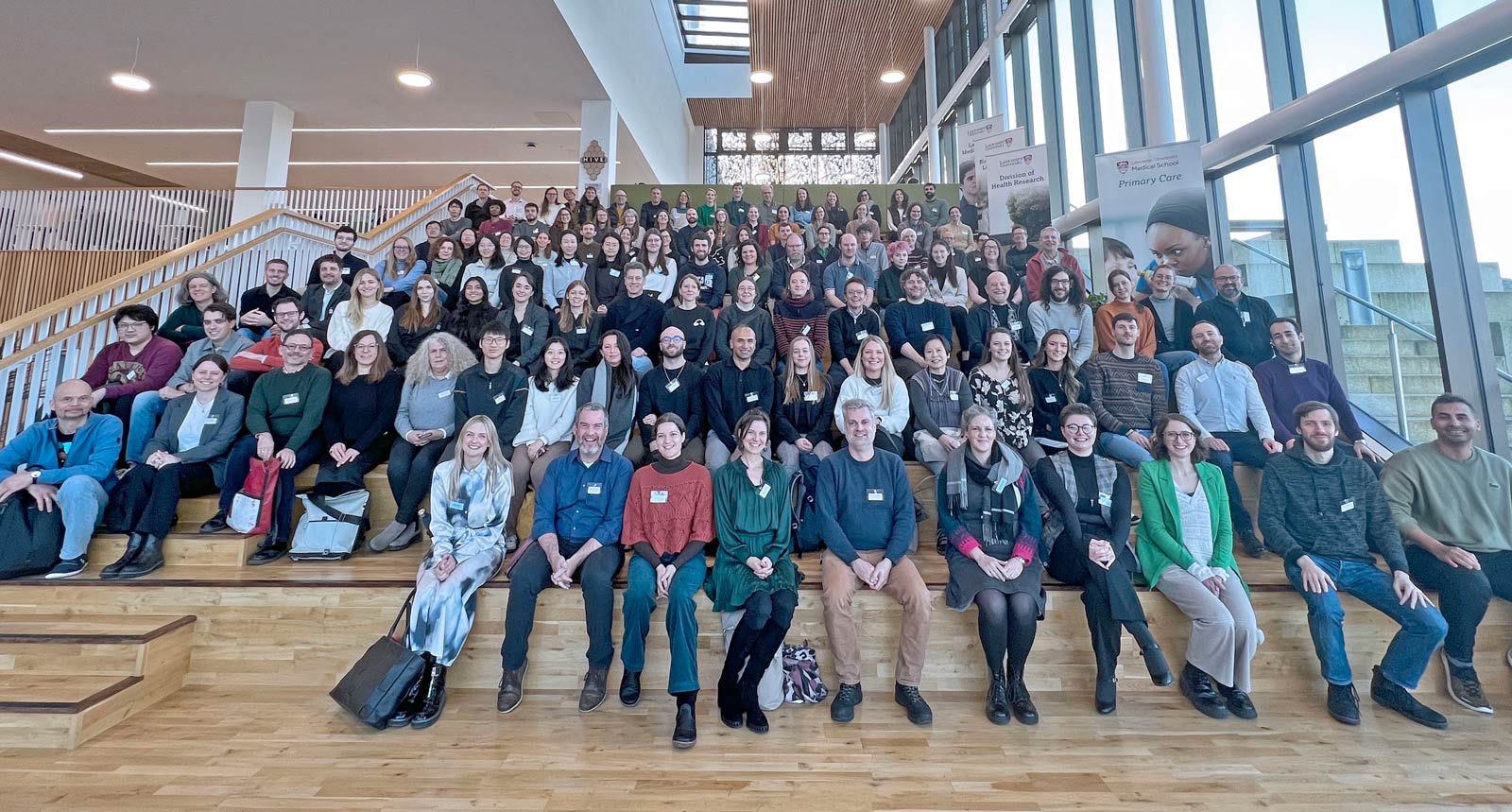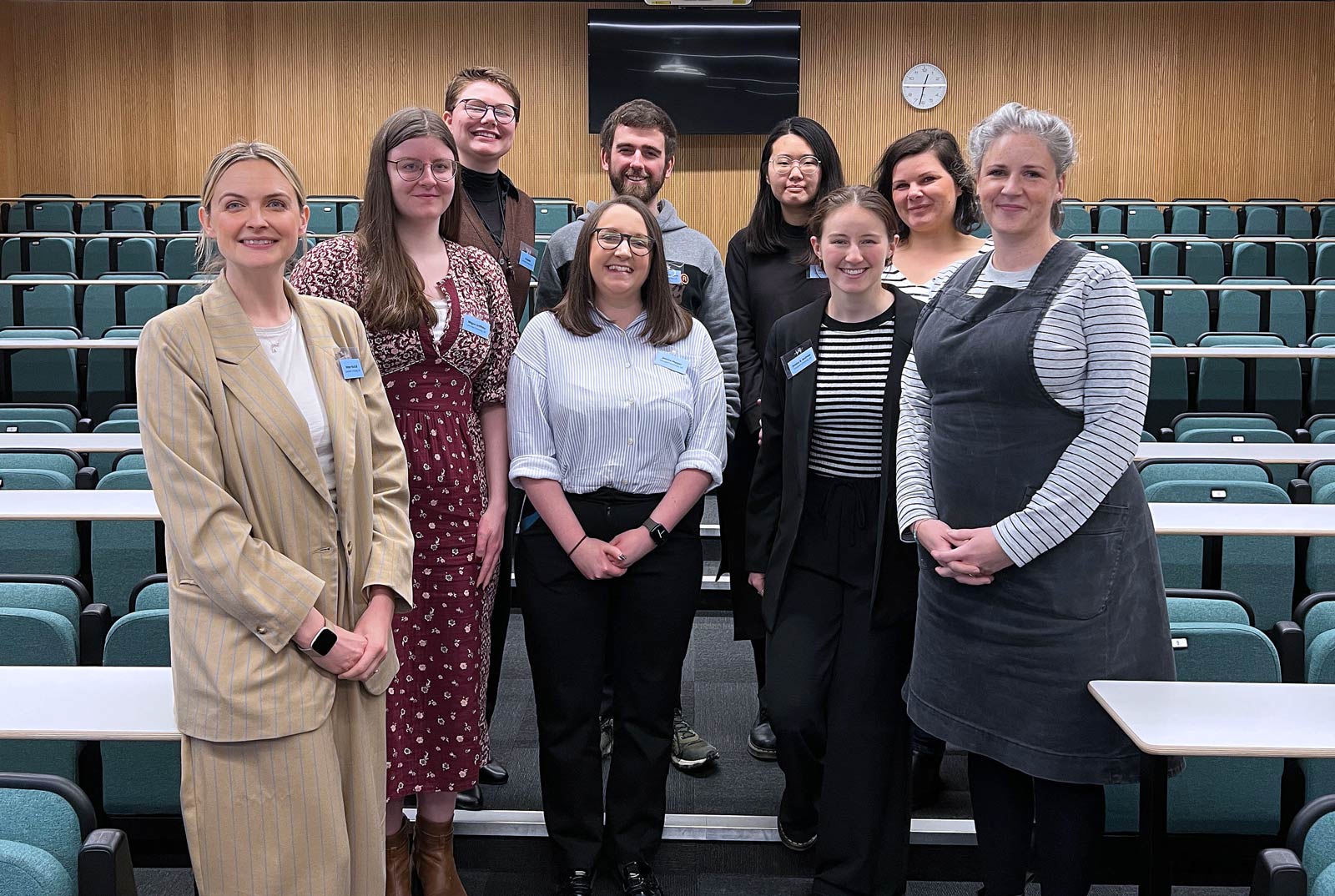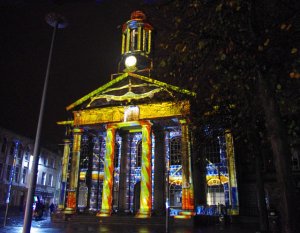The 16th Speech in Noise Workshop (SPIN2025) took place 9-10 January 2025 in the beautiful city of Lancaster, UK, at the Health and Innovation Campus of Lancaster University.
- The next SPIN meeting will take place in Paris, France, tentatively on 12-13 January 2026!
- If you presented at SPIN, consider uploading your poster and sending a DOI. See details.
Colin Cherry Award 2025
The Colin Cherry Award 2025 was attributed to Jessica L. Pepper for her poster "The role of age-related changes in alpha activity during dual-task speech perception and balance". Congratulations!
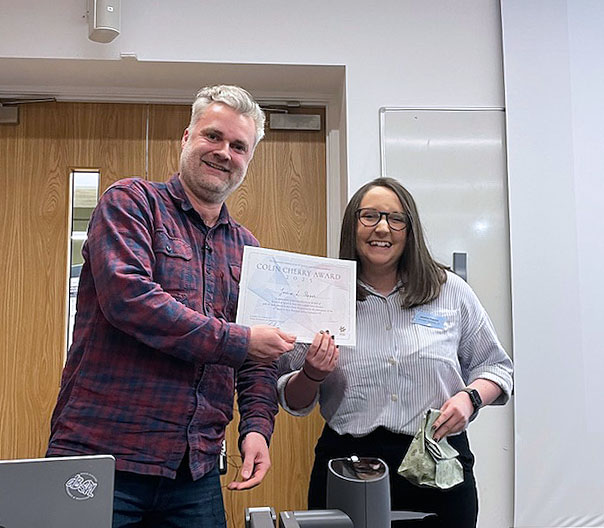
The Colin Cherry Award is attributed every year in appreciation of a contribution to the field of Research on Speech in Noise and Cocktail Party Sciences, with the work selected for best poster presentation by the participants of the Speech in Noise Workshop. The prize consists of a cocktail shaker, and the recipient receives an invitation to present their work at the following SPIN workshop.
Programme overview
Keynote Lecture:
“Towards a multimodal view on the neurobiology of language”
Linda Drijvers
Donders Institute, Radboud University, Nijmegen, Netherlands
Invited speakers:
- Colin Cherry Award 2024
Cosima M. A. Stokar von Neuforn, Patrizia F. Scholz
Health and Medical University, Potsdam, Germany
Caught in the cue: Multimodal attentional bias in alcohol and nicotine users - Warren Bakay
Bakay Lab, University of Roehampton, London, UK | Cognitive and Auditory Neuroscience Laboratory (CANELab), Institute of Neuroscience of Castilla y León (INCYL), Salamanca, Spain
Phoneme encoding in the inferior colliculus of gerbils, with and without noise induced cochlear synaptopathy - Anne Keitel
University of Dundee, UK
The role of individual brain rhythm differences in understanding speech in noise - Meher Lad
University of Newcastle, UK
Speech-in-noise impairments in Alzheimer’s disease dementia - Raluca Nicoras
University of Nottingham, Glasgow, UK
Conversation success and behaviours in multiparty interactions - Adam Tierney
Birkbeck, University of London, UK
Weighting of cues to segmental and suprasegmental categorization in quiet and informational masking - Niki K. Vavatzanidis
Ear Research Center Dresden, Technische Universität Dresden, Germany
Language acquisition with cochlear implants - Charlotte Vercammen
Sonova AG, Stäfa, Switzerland | University of Manchester, UK | University of Leuven, Belgium
Big data insights from hearing aid sound environment classification and smartphone-based self-reported hearing-aid experiences - Deborah Vickers
University of Cambridge, UK
Spatial hearing training for young bilateral cochlear implant users: the BEARS approach - Kelly Whiteford
University of Michigan, Ann Arbor, MI, USA
Association of musical training with speech neural coding and perception

